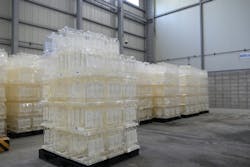Samsung Receives Zero Waste to Landfill Validations for All of Its Global Semiconductor Manufacturing Sites
Samsung Electronics Co., Ltd., on June 10 announced that it has received UL’s Zero Waste to Landfill validation of Gold level and above for all of its global semiconductor operation sites.
This signifies that Samsung’s semiconductor sites in South Korea, the U.S. and China meet the requirement of more than 95% waste diversion through methods that do not involve thermal processing.
In particular, the Samsung DSR building in Hwaseong, Korea, home to most of its local semiconductor R&D staff, is validated for Zero Waste to Landfill at the Platinum level for reaching 100% waste diversion.
“Eco-friendly operations are now a must for any business and we will continue to ensure sustainable growth that is mindful of the environment that we live and operate in, said ”Chanhoon Park, executive vice president of global infrastructure technology at Samsung Electronics.
Starting with Samsung Austin Semiconductor’s (Austin, Texas) validation in January, the five semiconductor manufacturing sites in Korea (Giheung, Hwaseong, Pyeongtaek, Onyang and Cheonan) and two in China (Xi’an and Suzhou) have all received validation for Zero Waste to Landfill Gold level and above for their waste diversion initiatives as of June 2020.
These programs were designed to minimize the environmental footprint by shifting waste management methods from thermal processing or landfill disposals to recycling and reuse, enabled by innovation in manufacturing techniques and continued investment in existing systems, as well as robust employee awareness and waste reduction campaigns.
